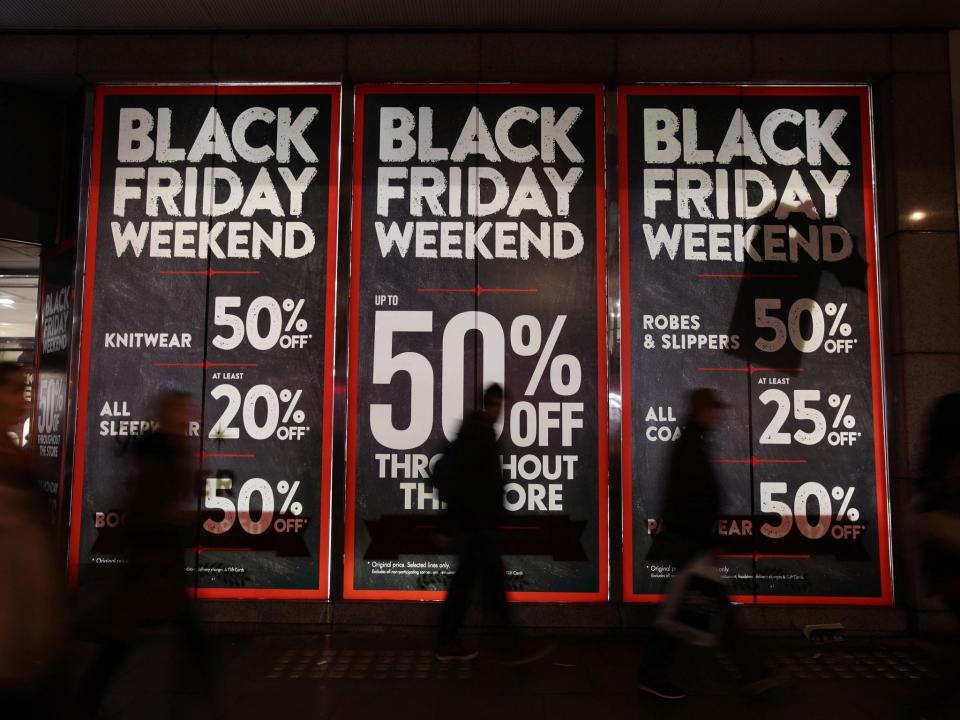UK retail sales jump unexpectedly in November, aided by Black Friday bargain shopping

Retail sales jumped unexpectedly in November, reflecting Black Friday bargain hunting by shoppers.
The Office for National Statistics (ONS) reported that sales volumes were up 1.1 per cent in the month, well ahead of the 0.4 per cent that City of London analysts had expected.
The year-on-year growth rate came in at 1.6 per cent, also well ahead of City predictions of an 0.3 per cent expansion.
Electrical household appliances made the largest contribution to the jump in sales, growing by 8.6 per cent in the month.
Furniture sales volumes were up 3.7 per cent, and music and video recording equipment up by 3.9 per cent.
However, sales volumes were still up 0.8 per cent, suggesting that, even without Black Friday, consumer spending is still holding up, despite falling real wages.
“Underlying retail sales growth remained reasonably strong in the last few months. Household goods stores had a good November, with a number of businesses saying that Black Friday promotions boosted sales,” said Rhian Murphy of the ONS.

Retails sales account for around 30 per cent of household expenditure, which itself has been a crucial prop for economic growth ever since the Brexit vote in June 2016.
In October, a Distributive Trades Survey by the CBI had sparked fears of a collapse in retail sales, with stores reporting the worst performance since March 2009.
But this indicator recovered strongly the following month.
Retailers have reported divergent performances over Black Friday’s discounting event. Dixons Carphone registered record sales, but Carpetright warned of fragile consumer confidence in the second half of the year.
Analysts were cautious about interpreting the latest ONS data as a sign of consumer strength.
“We would not get too carried away by the figures,” said Ruth Gregory of Capital Economics.
“In recent years, Black Friday discounting has generally led consumers to do their Christmas shopping earlier than usual, rather than making many additional purchases.”
“There are few reasons to expect consumer spending to improve as we head into 2018,” agreed James Smith of ING.
“Consumer confidence is still as low as it was in the immediate aftermath of the Brexit vote, and with early signs the jobs market is going through a rough patch, shoppers are likely to remain wary.”
The biggest contributor to monthly volume growth in November came from non-food stores.
The Bank of England raised interest rates for the first time in a decade in November, fearing that domestic inflationary pressures could get out of hand otherwise.
Headline inflation rose to 3.1 per cent in November, the ONS reported this week, well ahead of nominal annual pay growth, although most analysts expect inflation to have now peaked.
